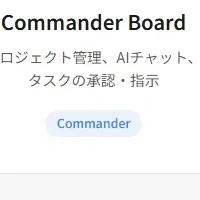
Establishing Ethical AI Standards: A EU Initiative for Transparency and Trust
Setting Ethical Standards for AI in Europe
The landscape of artificial intelligence (AI) is rapidly evolving, influencing various aspects of our daily lives. As AI begins to control more processes, the necessity for a solid foundation of ethical standards becomes imperative. Recently, the St. Pölten University of Applied Sciences embarked on an innovative project, CERTAIN (Certification for Ethical and Regulatory Transparency in Artificial Intelligence), aimed at establishing these crucial standards within the European Union.
Objectives of the CERTAIN Project
In collaboration with various partners across Europe, the CERTAIN initiative focuses on creating tools that will make AI systems more transparent and verifiable. One of the project's central goals is to help organizations navigate the intricate landscape of the EU's regulations concerning AI development. As EU rules become more stringent, companies must comply with these regulations responsibly and efficiently. By developing feasible solutions, CERTAIN aims to bolster confidence in AI technologies across different sectors.
Sebastian Neumaier, the project manager and Senior Researcher at the Institute of IT Security Research at St. Pölten UAS, stated, "In CERTAIN, we want to develop tools that make AI systems transparent and verifiable in accordance with the requirements of the EU's AI Act." This commitment underscores the project’s dedication to aligning AI innovations with ethical guidelines.
Promoting Transparency and Innovation
CERTAIN is designed to produce in-depth guidelines and digital solutions aligned with existing European legal frameworks concerning AI, notably the EU's AI Act. The initiative seeks to create user-friendly tools not only for the public sector but also for businesses. By simplifying the complex legal requirements, the project aspires to highlight the benefits that advanced technologies can bring and how they can be effectively utilized.
Moreover, the project aims to set universal standards for data management within AI frameworks. This approach encourages collaboration in data processing while promoting sustainable growth and the creation of trustworthy European data spaces. As AI systems become intertwined with daily operations, ensuring ethical treatment of data will be a critical focal point.
Addressing Ecological Challenges
In addition to ensuring compliance with regulations, CERTAIN also takes into account the ecological implications tied to AI processes. This aligns with the EU’s Green Deal, emphasizing the importance of energy-efficient AI practices and sustainable data management methods. By integrating sustainability into the AI value chain, CERTAIN sets out to address not just technological challenges but also ecological responsibilities.
Collaborative Practical Approaches
the St. Pölten UAS project team maintains active dialogue with a diverse range of participants, including researchers, companies, and users. This collaborative approach allows for continuous development, testing, and refinement of new ideas and solutions. As part of the project’s commitment to informing stakeholders and AI providers about legal and ethical considerations, current developments are shared regularly, enhancing the overall ecosystem of AI technologies in Europe.
About CERTAIN
The research project CERTAIN unites 19 partners from ten European countries, demonstrating a collaborative effort to navigate the complexities of ethical AI implementation. Led by Idemia Identity & Security France in partnership with St. Pölten UAS, the initiative convenes leading industrial firms, academic institutions, and research organizations to foster an innovative approach to AI standards.
The CERTAIN project received funding through the Horizon Europe program, specifically targeting Digital, Industry, and Space sectors, and represents a commitment to nurturing the development of ethical AI frameworks across Europe. As global reliance on AI technologies grows, projects like CERTAIN are essential in shaping a responsible and sustainable future.
For more details about the CERTAIN project and ongoing developments, visit CERTAIN Project Website.
Conclusion
As artificial intelligence continues to mold our world, initiatives driven by ethical considerations will play an indispensable role. Through projects like CERTAIN, the foundation for sustainable and transparent AI development will be established, creating a framework that nurtures innovation while also prioritizing ethics and regulation compliance.
Topics Consumer Technology)










【About Using Articles】
You can freely use the title and article content by linking to the page where the article is posted.
※ Images cannot be used.
【About Links】
Links are free to use.